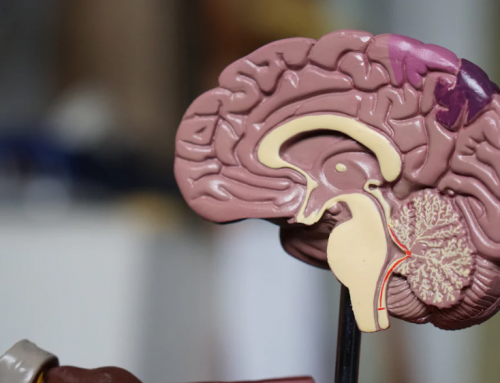Discover the transformative power of sialic acid in boosting your immune system. This remarkable compound acts as a shield, protecting your cells from harmful pathogens. It enhances communication between your immune cells, ensuring they work together efficiently. By maintaining a balanced immune response, sialic acid helps prevent overactive reactions that could lead to autoimmune diseases. Embrace the benefits of this powerful substance and unlock a healthier, more resilient you.
Sialic Acid Protects Cells from Pathogens

Sialic acid plays a vital role in safeguarding your cells from harmful invaders. This powerful compound acts as a protective barrier, ensuring that pathogens find it difficult to latch onto your cell surfaces.
Acts as a Barrier Against Infections
Prevents pathogen binding to cell surfaces
Your body faces constant threats from various pathogens. Sialic acid steps up as a defender by preventing these invaders from binding to your cell surfaces. By doing so, it reduces the chances of infections taking hold. Pathogens often attempt to attach themselves to cells, but sialic acid creates a shield that makes this task challenging for them.
Reduces the risk of viral and bacterial infections
With sialic acid in action, the risk of viral and bacterial infections diminishes significantly. It acts as a frontline warrior, stopping many pathogens before they can cause harm. Research highlights that over 20 pathogenic microorganisms have evolved to capture sialic acids from hosts, showcasing its importance in immune defense. By keeping these invaders at bay, sialic acid helps maintain your health and well-being.
Supports Cell Surface Integrity
Maintains the stability of cell membranes
Sialic acid doesn’t just stop at blocking pathogens; it also ensures that your cell membranes remain stable. This stability is crucial for maintaining the integrity of your cells. When cell membranes are strong, they provide a robust defense against external threats. Sialic acid contributes to this strength, making sure your cells are well-protected.
Enhances the body’s first line of defense
Your body’s first line of defense relies heavily on the integrity of cell surfaces. Sialic acid enhances this defense by supporting the stability and functionality of cell membranes. By doing so, it ensures that your immune system can respond swiftly and effectively to any threats. This enhancement is vital for keeping your immune system in top shape, ready to tackle any challenges that come its way.
Sialic Acid Enhances Communication Between Immune Cells

Sialic acid plays a crucial role in ensuring your immune cells communicate effectively. This communication is vital for a robust immune response, allowing your body to recognize and respond to threats swiftly.
Facilitates Immune Cell Signaling
Sialic acid acts as a key player in immune cell signaling. It helps your immune system identify and target pathogens more efficiently.
Improves the recognition of pathogens
Your immune cells need to recognize invaders quickly to mount an effective defense. Sialic acid enhances this recognition process. By participating in cell signaling, it ensures that your immune cells can detect pathogens accurately. This improved recognition is essential for initiating a timely immune response, keeping you protected from potential threats.
Promotes efficient immune responses
Once your immune cells recognize a pathogen, they must respond efficiently. Sialic acid supports this process by facilitating communication between cells. This communication ensures that your immune system can coordinate its efforts, leading to a more effective defense. With sialic acid, your body can respond to threats with precision and speed, minimizing the risk of infection.
Modulates Immune Cell Interactions
Beyond signaling, sialic acid also modulates interactions among your immune cells. This modulation is crucial for maintaining a balanced and coordinated immune response.
Supports coordination among different immune cells
Your immune system comprises various cells, each with a specific role. Sialic acid helps these cells work together seamlessly. By modulating their interactions, it ensures that your immune system functions as a cohesive unit. This coordination is vital for mounting a comprehensive defense against pathogens.
Enhances the body’s ability to respond to threats
A well-coordinated immune system can respond to threats more effectively. Sialic acid enhances this ability by ensuring that your immune cells communicate and interact optimally. This enhancement allows your body to adapt to different challenges, providing a robust defense against infections. With sialic acid, your immune system remains vigilant and ready to protect you.
Scientific Research Findings: Studies have shown that sialic acids play pivotal roles in the regulation of the immune system, including immune cell signaling and interactions. These findings highlight the importance of sialic acid in maintaining a healthy immune response.
Sialic Acid Maintains a Balanced Immune Response
Regulates Immune System Activity
Sialic acid plays a pivotal role in keeping your immune system in check. It ensures that your body’s defenses remain vigilant without going overboard.
Prevents overactive immune responses
Your immune system needs to be active, but not too active. Sialic acid helps prevent overactive immune responses that can harm your body. By modulating immune cell activity, it ensures that your immune system reacts appropriately to threats without causing unnecessary inflammation or damage.
Reduces the risk of autoimmune diseases
Autoimmune diseases occur when your immune system mistakenly attacks your own cells. Sialic acid reduces this risk by maintaining a balanced immune response. It helps your immune system distinguish between harmful invaders and your own healthy cells, minimizing the chances of autoimmune reactions.
Scientific Research Findings: Studies have shown that sialic acids play a crucial role in immune system regulation, including the modulation of antibody effects and complement activation. These findings highlight the importance of sialic acid in preventing overactive immune responses and reducing the risk of autoimmune diseases.
Supports Immune Homeostasis
Sialic acid is essential for maintaining immune homeostasis, ensuring that your immune system functions smoothly and efficiently.
Ensures a balanced production of immune cells
Your body needs a steady supply of immune cells to fight off infections. Sialic acid supports the balanced production of these cells, ensuring that your immune system remains well-equipped to handle any threats. By regulating immune cell production, it helps maintain a healthy balance, preventing both deficiencies and excesses.
Promotes long-term immune health
Long-term immune health is vital for your overall well-being. Sialic acid promotes this by supporting the stability and functionality of your immune system. It ensures that your body can adapt to new challenges and recover from illnesses effectively. With sialic acid, you can enjoy a resilient immune system that stands strong over time.
Scientific Research Findings: Research indicates that sialic acids are involved in various facets of immune system modulation, including leukocyte trafficking and dendritic cell maturation. These roles are crucial for maintaining immune homeostasis and promoting long-term immune health.
Sialic acid empowers your immune system in remarkable ways. It acts as a barrier against pathogens, enhances communication between immune cells, and maintains a balanced immune response. By incorporating sialic acid into your diet or supplements, you can fortify your body’s defenses. This compound not only reduces the risk of infections but also supports long-term immune health. Explore foods rich in sialic acid or consider supplements to boost your immunity. Embrace the potential of sialic acid and take a proactive step towards a healthier, more resilient you.
Send Inquiry
References:
1.Utilization of Sialic Acid by Bacterial Pathogens-Several bacterial pathogens can put sialic acid residues on their outer surfaces, masking them from the host immune system.
2.Sialic Acid: A Preventable Signal for Pneumococcal Biofilm Formation, Colonization, and Invasion of the Host-Sialic acid is crucial for the pathogenesis of some bacteria, either synthesized by microbes or used from the host for metabolism and cell surface decoration.
3.Role of Sialic Acid in Pathological Cell Communication and Signaling-Sialic acids play pivotal roles in the regulation of the immune system, tumor development, and pathogen interactions with higher animals.
4. Pathogen Ligands and Innate Immunity-Over 20 pathogenic microorganisms have evolved the capacity to synthesize or capture sialic acids from hosts, incorporating them into their glycoconjugates.
5.Role of Sialic Acids in Host-Parasite Interactions-Sialylation increases parasite’s resistance to killing by lytic antibodies and hampers the activation of the complement cascade.





